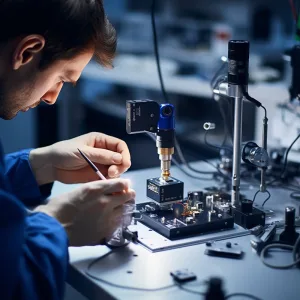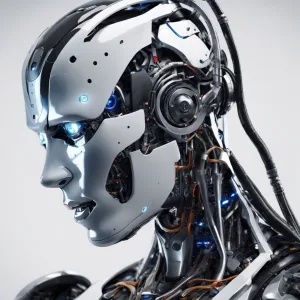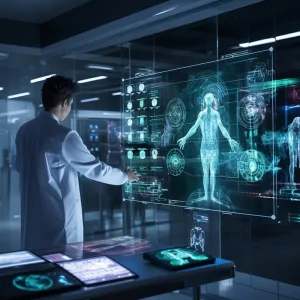Ai sensor Manufacturer
AI sensor solutions
- Reacting quickly
- Technical support
- After-sales support
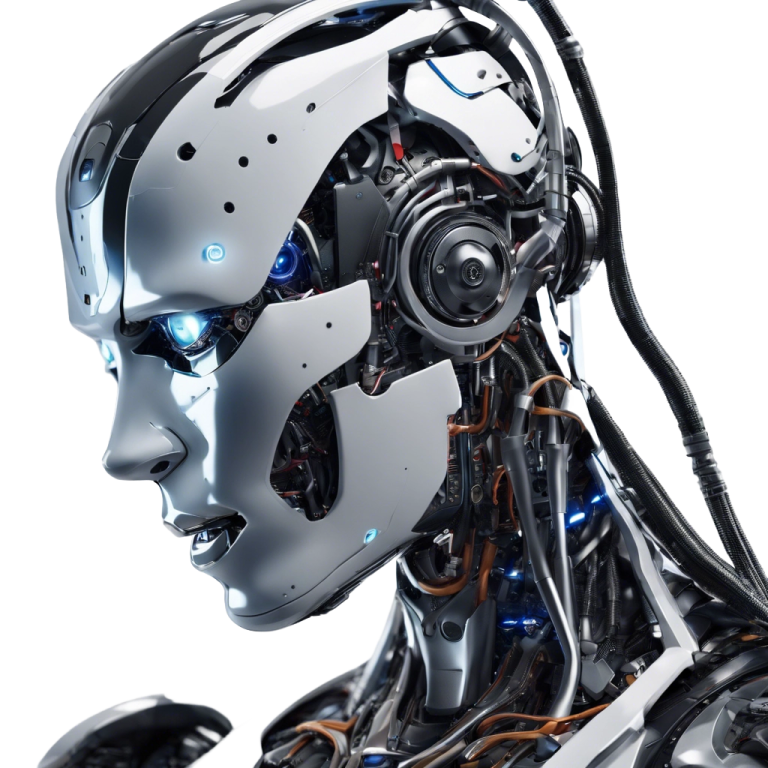
AI Sensor: Revolutionizing Industries with Smart and Versatile Solutions
Welcome to XJCSENSOR, the leading AI sensor factory specializing in the production of high-quality and reliable sensors. We offer a wide range of sensors including Tension Sensors, Force Sensors, Torque Sensors, Load Cells, Control Instruments, Transmitters, and more. As a trusted China-based supplier and manufacturer, we are dedicated to providing customized solutions to meet our customers’ specific requirements. In this page, we will explore the application of sensors in Artificial Intelligence (AI) and how XJCSENSOR can help you with your AI projects.
The Role of Sensors in Artificial Intelligence
Artificial Intelligence relies heavily on accurate and precise data acquisition from the physical world. Sensors play a crucial role in capturing real-time information, enabling AI systems to perceive and understand their environment. XJCSENSOR offers a comprehensive range of sensors that can be integrated into various AI applications, enhancing their performance and capabilities.
Enhancing AI Performance with XJCSENSOR's Sensors
Accuracy and Precision
Our sensors provide highly accurate and precise measurements, allowing AI systems to make informed decisions based on reliable data.
Real-time Data Acquisition
With fast response times and high sample rates, our sensors enable AI systems to capture real-time data from the environment, facilitating quick and efficient decision-making.
Environmental Adaptability
XJCSENSOR's sensors are built to withstand harsh and challenging environments, ensuring optimal performance even under demanding conditions. This adaptability is crucial for AI systems deployed in diverse settings.
Customization Options
We understand that every AI project has unique requirements. XJCSENSOR offers custom sensor solutions tailored to your specific needs, allowing seamless integration into your AI applications. Our experienced team of engineers will work closely with you to design and manufacture sensors that precisely meet your project requirements.
Understanding the Importance of AI Sensors
AI sensors are at the forefront of technological advancements, providing machines with the ability to gather real-time data and make informed decisions. These sensors act as the sensory organs of AI systems, capturing critical information from the environment and turning it into actionable insights. With their accuracy, precision, and adaptability, AI sensors have become vital components in numerous applications, enhancing performance and enabling new possibilities.
Applications of AI Sensors
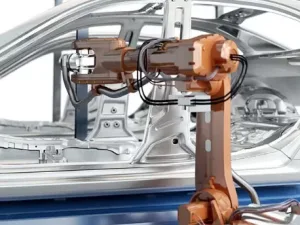
Automotive Industry
In the automotive sector, AI sensors are used for autonomous driving, driver-assistance systems, and vehicle safety. LiDAR and camera sensors enable accurate perception of the surroundings, while radar and ultrasonic sensors provide object detection and collision avoidance capabilities. These sensors work together to create a comprehensive picture of the vehicle's environment, ensuring safer and more efficient transportation.
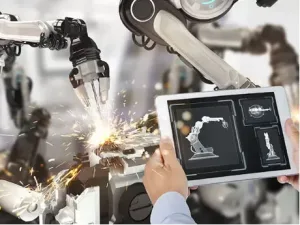
Manufacturing and Industrial Automation
AI sensors are revolutionizing manufacturing processes by enabling intelligent automation and predictive maintenance. By monitoring variables such as temperature, pressure, vibration, and machine performance, these sensors provide real-time insights that optimize production efficiency, reduce downtime, and enhance overall equipment effectiveness.

Healthcare and Biotechnology
In healthcare, AI sensors contribute to patient monitoring, medical diagnostics, and drug development. Wearable sensors can continuously track vital signs, enabling remote patient monitoring and early detection of potential health risks. Additionally, sensor-equipped lab instruments aid in precise diagnostics, while genetic and molecular sensors assist in advanced research and development within the biotechnology field.

Smart Cities and Infrastructure
AI sensors play a vital role in creating smart and sustainable cities. Environmental sensors monitor air quality, noise levels, and weather conditions, allowing for effective urban planning and resource management. Smart traffic management systems utilize sensors to optimize traffic flow and reduce congestion. Furthermore, AI sensors facilitate efficient energy management by monitoring consumption patterns and optimizing distribution.
Wholesale and Distribution

Comprehensive Product Range
As a comprehensive AI sensor manufacturer, we offer a wide selection of sensors to address different measurement requirements. Our product range includes:
- Tension Sensors: Measure tension forces with precision and accuracy.
- Force Sensors: Enable accurate force measurements in various applications.
- Torque Sensors: Provide precise torque measurements for rotational systems.
- Load Cells: Monitor weight and force distributions accurately.
- Control Instruments: Offer control solutions to complement sensor functionality.
- Transmitters: Transmit sensor data reliably to external devices.
Contact Us
Frequently Asked Questions (FAQs) about Ai sensor
An AI sensor refers to a sensor that is utilized in Artificial Intelligence systems to collect data from the environment. These sensors capture physical or environmental information and provide it as input to AI algorithms, enabling machines to perceive, interpret, and interact with their surroundings.
Various sensors are employed in AI applications, depending on the specific use case. Commonly used sensors include cameras, LiDAR (Light Detection and Ranging), radar, ultrasonic sensors, temperature sensors, pressure sensors, proximity sensors, and more. These sensors help AI systems gather information about the physical world.
AI sensors function by detecting or measuring specific physical properties of the environment, such as light, sound, temperature, motion, or proximity. The collected data is then processed by AI algorithms to extract meaningful insights, make informed decisions, and perform actions based on the analysis.
AI robots often employ a combination of sensors for perception and interaction with their surroundings. They may utilize cameras for vision, ultrasonic or infrared sensors for distance measurement, touch sensors for tactile feedback, gyroscopes and accelerometers for orientation and motion sensing, and other specialized sensors depending on their intended tasks.
There are various manufacturers involved in producing AI sensors. XJCSENSOR, as a trusted sensor factory, is one of the manufacturers specializing in the production of a wide range of sensors suitable for AI applications.
AI is extensively used in factories to optimize processes, improve efficiency, and enable predictive maintenance. It can be applied in areas such as quality control, monitoring and analysis of production lines, inventory management, supply chain optimization, robotics, and automation.
Smart factories integrate a variety of sensors for data collection and process optimization. These may include temperature sensors, humidity sensors, pressure sensors, flow sensors, presence sensors, motion sensors, vibration sensors, and others. The choice of sensors depends on the specific tasks and requirements within the smart factory environment.
AI can be utilized in sensors to enhance their functionality and performance. Machine learning algorithms can be employed to analyze sensor data, identify patterns, detect anomalies, and provide real-time insights. This enables sensors to make intelligent decisions, adapt to changing conditions, and improve overall system performance.
AI is revolutionizing the manufacturing industry by enabling advanced automation, predictive maintenance, quality control, demand forecasting, supply chain optimization, and more. AI technologies such as machine learning, computer vision, natural language processing, and robotics are applied to streamline processes, increase productivity, and drive innovation.
The future of AI in the manufacturing industry holds immense potential. It is expected to bring further advancements in automation, predictive analytics, autonomous systems, collaborative robots, digital twins, and smart decision-making. With AI-driven technologies, manufacturers can optimize processes, enable flexible production, and create more sustainable and efficient operations.
